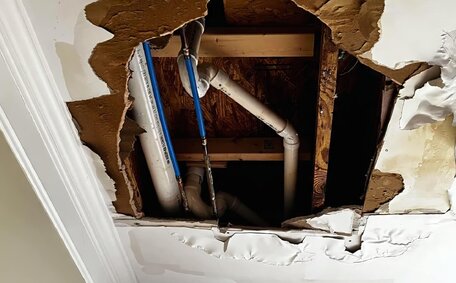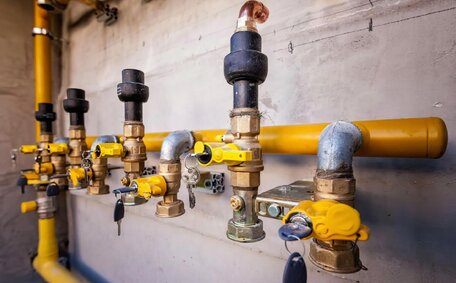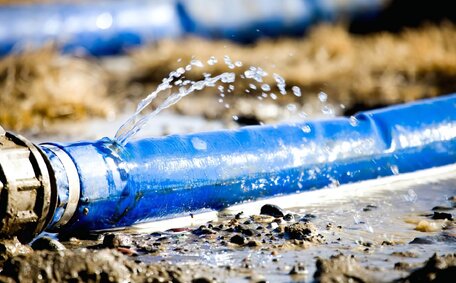Introduction to blocked drains in apartments
Blocked drains are a common issue facing apartment buildings, often leading to messy and inconvenient plumbing problems for residents. When drains become clogged in an apartment complex, it can quickly escalate into a complex issue impacting multiple units and causing major headaches.
There are many causes of blocked drains in apartments. Tree roots or a collapsed sewer line can also lead to back-ups.
Food scraps, hair, and other debris going down sinks and showers can build up over time. Additionally, if one unit has a clog, it can sometimes end up blocking pipes for other nearby units as well.
No matter what causes a blocked drain, it needs to be addressed promptly. An untreated clog can lead to foul odours in units, water damage if pipes back up, and potential health hazards if sewage leaks out. Trying amateur drain cleaning solutions often makes the problem worse.
The best solution is contacting a professional plumbing company as soon as an issue arises. They have the expertise and equipment to diagnose the exact location of the clog and clear it fully. This helps prevent the problem from escalating and impacting more residents.
For apartment managers and owners, staying on top of drain maintenance and teaching residents best practises can help reduce clogs proactively. But even still, seeking professional help right away is key to minimising disruption when blocked drains inevitably occur.
Who is responsible for clearing blocked drains in apartments?
When it comes to blocked drains in an apartment building, responsibility for clearing and repairing the issue depends on a few factors:
In standard rental apartments, the property owner or landlord is generally responsible for clearing any blocked drains. They must cover the cost of a plumber to diagnose and repair clogged pipes in order to keep the rental units functioning properly.
For apartments that are part of an owners’ corporation or strata scheme, responsibility is a bit more complex. The owners’ corporation is usually responsible for maintaining and repairing any pipes and drains that are part of the common property. This includes sewer and wastewater pipes that service the entire building.
However, plumbing fixtures inside individual units like sinks, toilets and showers are the responsibility of each apartment owner. If a clog originates within one unit’s pipes, such as a kitchen sink clog, the owner of that unit is responsible for clearing it.
That said, if the clog then spreads to affect the common wastewater pipes, the owners’ corporation will need to get involved and cover repairs. So in apartments with shared plumbing infrastructure, liability for blockages can get complicated quickly.
The best approach is prevention. Both landlords and strata managers should schedule regular drain inspections and employ plumbers to hydro jet common pipes. Educating residents on what not to pour down drains can also help avoid clogs.
But when a serious blockage does occur, contacting a professional plumbing company promptly is crucial, regardless of who foots the bill. They can isolate the blockage location and clear it fully before it causes overflowing and water damage.
Common causes of blocked drains in apartments
There are several common culprits behind blocked drains in apartments:
- Food - Leftover fats, oils and food scraps going down kitchen sinks are a major cause of clogs.
- Hair - Strands getting caught in pipes can accumulate over time and lead to blockages.
- Hygiene products - Items like cotton buds or dental floss getting flushed down toilets frequently cause obstructions.
- Paper products - Tissues, paper towels and other items that don’t break down can build up and clog drains.
- Plant roots - Tree roots or shrubbery growing near exterior plumbing lines may enter and choke pipes.
- Detergents - Greasy residue from soaps, shampoos and cleaning products can slowly narrow drain passages.
- Foreign objects - Coins, toys or other items accidentally dropped down drains can get lodged and cause stoppages.
- Pipe issues - Old, damaged or improperly installed pipes may have gaps or protrusions that catch debris.
By being mindful of what goes down drains and fixtures, many clogs can be avoided. But even with vigilance, apartment blockages still occur. A professional plumber can quickly clear any backed-up drains and determine if repairs are needed.
Preventing blocked drains in apartments
There are several strategies apartment dwellers and managers can employ to help prevent blocked drains:
- Use drain strainers in sinks to catch food scraps, hair and other debris before it goes down the drain.
- Avoid pouring fats, oils or grease down sinks - these should be collected and disposed of in the rubbish.
- Only flush toilet paper and human waste down toilets - no wipes, tissues, cotton buds, etc.
- Minimise use of powdered laundry detergents, as these can cause buildup.
- Don’t use chemical drain cleaners, as these can damage pipes over time.
- Consider installing hair catchers in shower drains.
- Use enzyme drain cleaners monthly to break down organic matter and keep pipes clear.
- For managers, have common drains and pipes professionally inspected annually and hydrojetted if needed.
- Educate residents on proper drain use and disposal of fats/solids to prevent misuse.
Staying vigilant and proactive with drain maintenance is the best line of defence. But even then, the occasional clog may still occur. Having an emergency plumber on call to address any issues promptly is advised.
Detecting blocked drains in apartments
There are a few signs that can indicate a blocked drain in an apartment:
- Water draining slowly or not at all from sinks, showers, bathtubs or toilets.
- Gurgling sounds coming from drainage pipes.
- Unpleasant sewage odours coming from drains.
- Water pooling around floor drains.
- Toilets overflowing.
If multiple apartments are affected, this points to a larger blockage in the main sewer lines. Residents should notify building management immediately in these cases.
For isolated issues in one unit, residents can try plunging sinks or toilets to clear minor clogs. Caustic drain cleaners are not recommended as they can damage pipes. Calling in a professional plumber to inspect is the safest bet if simple plunging does not resolve the issue.
Experienced plumbers have specialised tools like drain cameras and hydro-jetting equipment to thoroughly locate and clear any apartment drain obstructions.
Clearing simple drain blockages yourself
p>p>p>p>p>
Professional drain clearing for stubborn blockages
Some drain clogs can prove extremely stubborn, resisting all DIY efforts to clear them. Professional drain cleaning services use specialised equipment and methods to clear even the most persistent blockages.
A professional plumber has industrial-strength drain augers and snakes in varying diameters that can reach deep into pipework to cut through and extract solidified blockages. They also utilise high-powered hydrojetting techniques where pressurised water is used to scour pipes clean.
For severely blocked drains, camera inspections help plumbers pinpoint the exact location and cause of the obstruction. The camera shows any cracks, roots or collapsed sections needing repair.
Chemical drain cleaners containing concentrated lye or sulphuric acid are sometimes used to dissolve organic matter or hair/soap clogs. However plumbers are judicious with chemicals as they can corrode pipes if used improperly.
For apartment managers dealing with widespread drain issues, professional drain cleaning maintenance can keep pipes clear. Services like scheduled hydrojetting, camera inspections and enzyme treatments help prevent future clogs.
While DIY drain clearing has a place, professional help is recommended for severe or recurring blockages. They have the specialised equipment and expertise to solve drain problems you simply can’t on your own.
Working with building management on recurring issues
When apartment residents experience recurring plumbing problems such as blocked drains, it’s important to properly communicate issues to building management.
As a first step, thoroughly document each occurrence including date, time, specific issue, duration, units affected, and any other relevant details. Take photos or video if applicable.
Present this documentation to building management in a clear, professional manner. Highlight patterns and emphasise the ongoing nature of the problem.
Request they engage a professional plumbing service to inspect and resolve the issue fully, and to identify any underlying structural problems that require repair.
Follow up any verbal complaints in writing via email or letter. Keep copies to create a paper trail showing you reported the issue responsibly.
If management fails to take appropriate action, politely restate your concerns and your expectation the problem be fixed properly to avoid health hazards and property damage.
As a last resort for unresponsive building owners, check if your jurisdiction allows rent withholding or you can make an official complaint to a tenants’ rights organisation or local council.
While frustrating, recurring plumbing issues in apartments require patience and diligent communication. Documenting problems and calmly but firmly engaging management is key to reaching a permanent solution.
Maintaining shared drain lines
p>p>p>p>p>p>p>p>p>p>p>p>p>p>p>p>p>p>p>
When to call a professional plumber
p>p>p>p>p>p>p>p>p>p>p>p>p>p>
How to choose a reliable plumbing company
p>p>p>p>p>p>p>p>p>p>p>p>






